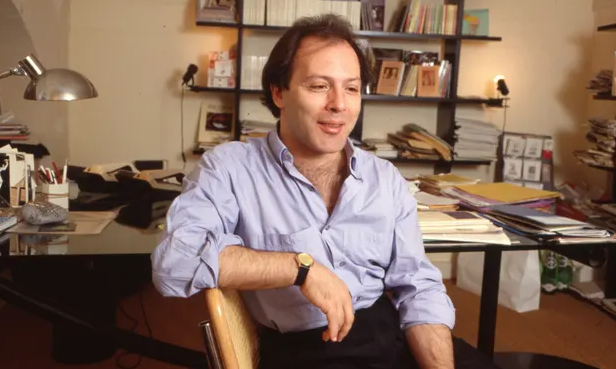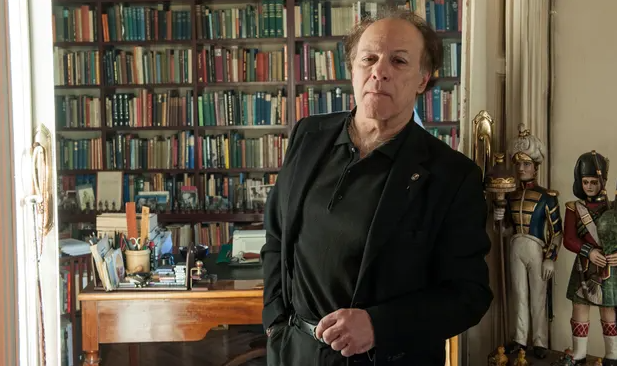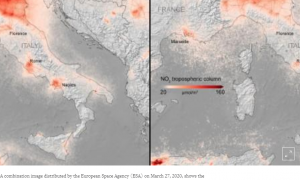The author of 15 novels, a perennial contender for the Nobel prize, and the most recent King of Redonda, the Spanish writer was an acute observer of the games we all play,Perhaps because Javier Marías felt deeply the absurdity of everyday life and had the sense that history is a game played out with dreadful consequences, he became interested in two pursuits that echo our witless absurdity: the art of spying and the craft of writing fiction. Of the first he became a canny investigator and observer, of the second a talented practitioner. Fifteen novels and several collections of short stories testify to these two lifelong interests, and his success can be measured in the enthusiasm of the reading public who eagerly sought out his books, published in close to 50 languages.
Of course, the world of spies was not his only interest: he enjoyed dissecting the games of academia, the tangles of erotic strategies, the gossipy realm of writing and publishing. But the spy story above all allowed Marías to explore the consequences of our playing games with each other. Whatever story he chose to tell was for him merely a starting point: the reader had to do the rest. “once you’ve finished a novel,” says one of his characters in The Infatuations, “what happened in it is of little importance and soon forgotten. What matters are the possibilities and ideas that the novel’s imaginary plot communicates to us and infuses us with, a plot that we recall far more vividly than real events and to which we pay far more attention.”
Marías, who died this week shortly before his 71st birthday, was one of Spain’s major novelists and a perennial candidate for the Nobel prize. He was the son of the celebrated philosopher Julián Marías, a disciple of José Ortega y Gasset, founder of the Revista de Occidente, a magazine in which many of the luminaries of the first half of the 20th century published much of their work. No doubt the philosophical atmosphere that reigned at home, and his father’s firm opposition to Franco’s regime, which landed him a jail sentence, moulded Marías’s childhood and adolescence. Like Iris Murdoch, whom he much admired, he believed that fiction must find its starting point in a philosophical question, and he agreed with her that “every book is the wreck of a perfect idea”.

“Life cannot be narrated,” Marías wrote in A Heart So White, “and it is extraordinary that we nevertheless have tried throughout the centuries to tell what cannot be told, whether in the form of myth, epic poem, chronicle, annals, minutes, fable, legend or canticle, blind man’s ballads or corridos, gospel, hagiography, history, biography, novel or funeral eulogy, film, confession, memoir, report, it really doesn’t matter.”
And yet, Marías believed that it was essential to persist, however hopelessly, to tell our stories. His fascination with English literature led him to translate several English classics, among them works by Thomas Browne and Lawrence Sterne, now recognised as the best-crafted in Spanish. He said that British history had always been part of his life, from reading the Just William stories as a child to struggling more recently to understand “the tragedy of Brexit”. Two of his most successful novels – A Heart So White and Tomorrow in the Battle Think of Me - have titles taken from Shakespeare, whom he also translated, and the Your Face Tomorrow trilogy can be read as a tribute to Oxford, where Marías taught.
Marias’s playfulness made him accept the crown of the almost-fictional Kingdom of Redonda, an uninhabited Caribbean island bought by the father of science-fiction writer MP Shiel, who was supposedly granted the right to be king by Queen Victoria. This allowed Marías to confer titles to many of his literary friends: WG Sebald was made Duke of Vertigo and Francis Ford Coppola the Duke of Megalópolis. When we met in Madrid, Marías spoke of Redonda as a quixotic creation but with far too many dukes and not enough ordinary citizens. “Maybe I should start establishing a proletariat for Redonda, made up of all politicians currently living off the fat of the land.” I don’t know whether he ever put his new plan in motion.

For all his interest in the real lives of professors and spies and the love entanglements of ordinary men and women, Marías never saw himself as a chronicler of actual characters of flesh and blood. “I’ve never been interested in what some people call naturalism or some people call realism,” he once said. “I’m not interested in using differentiated voices, not even in dialogue. It must be believable, but that’s all. I think, on the contrary, that it is a courtesy on the part of the author to give the reader something which is interesting and, if possible, intelligent.”
… as you’re joining us today from Thailand, we have a small favour to ask. Tens of millions have placed their trust in the Guardian’s fearless journalism since we started publishing 200 years ago, turning to us in moments of crisis, uncertainty, solidarity and hope. More than 1.5 million supporters, from 180 countries, now power us financially – keeping us open to all, and fiercely independent.Unlike many others, the Guardian has no shareholders and no billionaire owner. Just the determination and passion to deliver high-impact global reporting, always free from commercial or political influence. Reporting like this is vital for democracy, for fairness and to demand better from the powerful.
And we provide all this for free, for everyone to read. We do this because we believe in information equality. Greater numbers of people can keep track of the events shaping our world, understand their impact on people and communities, and become inspired to take meaningful action. Millions can benefit from open access to quality, truthful news, regardless of their ability to pay for it.Every contribution, however big or small, powers our journalism and sustains our future. Support the Guardian from as little as $1 – it only takes a minute. If you can, please consider supporting us with a regular amount each month. Thank you.







